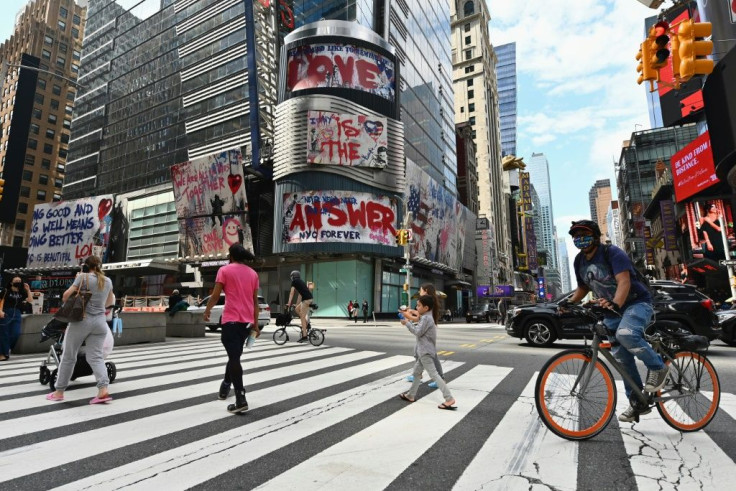Cuomo Contradicts De Blasio On Renewed Closures Of Orthodox Jewish Areas, Institutes State Control
KEY POINTS
- Gov. Andrew Cuomo announced that New York would not permit New York City to shut down businesses in nine areas where COVID-19 is rebounding
- The state will take over mask and social distancing enforcement, and accelerate school closures in those areas
- All nine areas contain large populations of Orthodox Jews, which have been hesitant to adopt health measures and vulnerable to medical disinformation
New York Gov. Andrew Cuomo has undercut plans from New York Mayor Bill de Blasio to close nonessential business in nine COVID-19 hotspots within the city.
De Blasio had announced Sunday that schools and nonessential businesses in 20 Brooklyn and Queens neighborhoods would be shut down. Gov. Andrew Cuomo stated Monday that the state would not be permitting the areas to close down, while accelerating school closure schedules.
Cuomo also said that the state would be taking over the enforcement of mask mandates and social distancing guidelines.
Treat COVID seriously. Wear a mask.
— Archive: Governor Andrew Cuomo (@NYGovCuomo) October 5, 2020
208,000 have died.
Many others will have long-term health problems because of it.
Be #NewYorkTough.
The shutdown would have been a half-step back from the aggressive reopening plans by the city, which recently reintroduced physical classes for the city’s sizeable student population.
All nine of the areas at risk of a second wave contain large populations of Orthodox Jews, a community that has been hesitant to slow to adopt countermeasures like mask mandates and vulnerable to medical misinformation, the New York Times reports. Their COVID-19 transmission rates range from 3% to 8%. The rest of New York City averages 1.5%.

Cuomo said that the state would be accelerating school closures in the areas to Tuesday. A further 11 zip codes will have had school remain open but banned indoor dining.
Cuomo and De Blasio have publicly feuded in the past. The mixed messaging left some on social media frustrated, but others pointed out that closing businesses in only a couple zip codes is unlikely to stop spreading in such a mobile city.
© Copyright IBTimes 2025. All rights reserved.





















